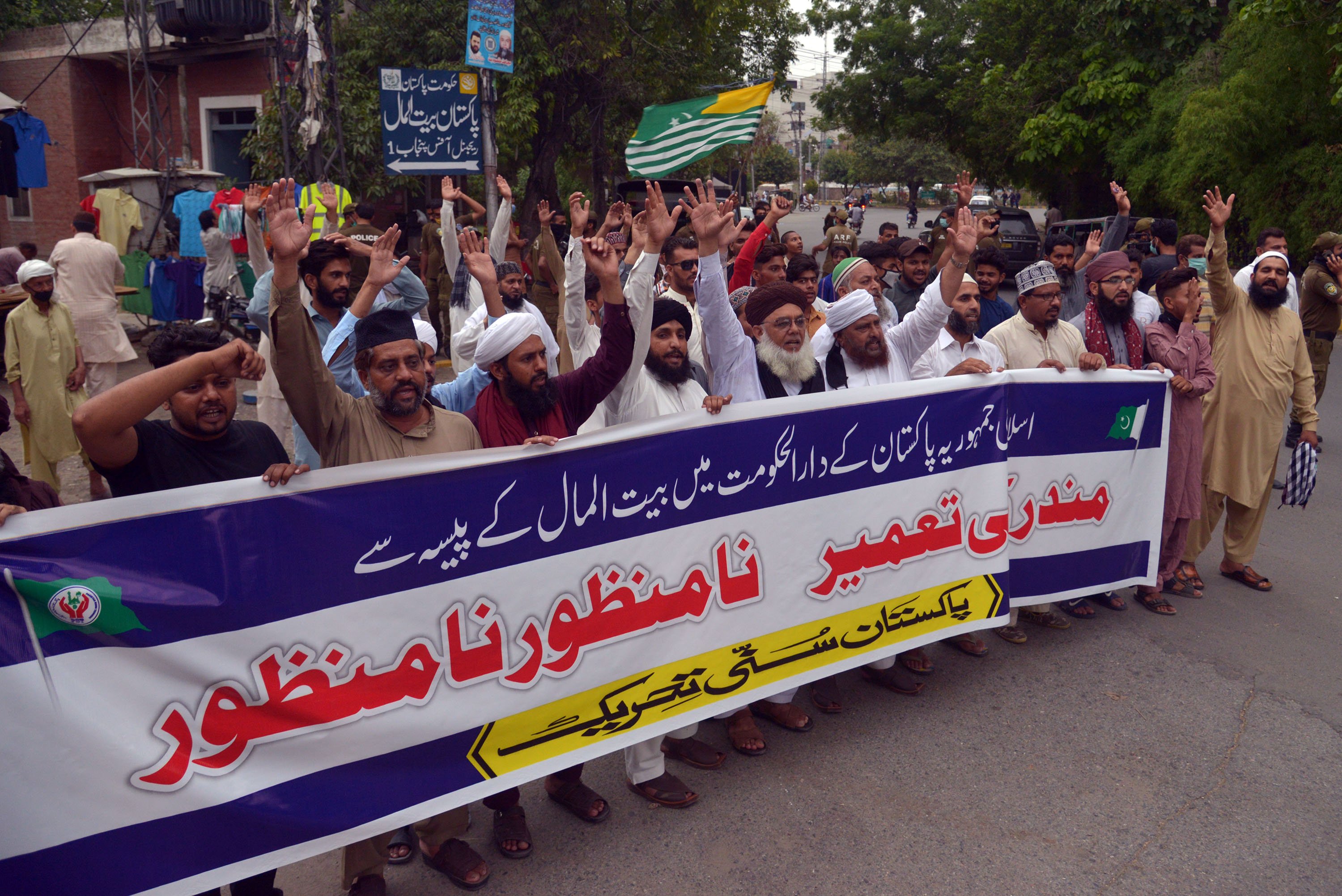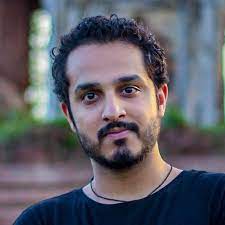How do journalists report accurately about a country which suffers sectarian violence without reinforcing Islamophobic tropes?
It’s hard not to have any notions about Pakistan, even if one has never visited it.
A country next door to Afghanistan - now ruled by the Taliban - with a government that, like its neighbour, is often perceived to enable and even support religious extremism.
I won’t argue that these notions are completely unfounded, that there is another Pakistan, a tolerant Pakistan that is somehow more reflective of truth. In fact, I would testify that Pakistan has experienced increased “radicalisation” over the years, an observation that has emerged from my lived experience within the country, as well as reporting about it.
Acts of mob violence, particularly against religious minorities have increased over the past several years, while the state continues to propagate a version of religious populism.
Much has been written about several religio-political groups within the country that enjoy unprecedented political power, both inside and outside of state institutions.
By this, I mean the political power to exercise violence without much accountability despite having no legal right to do so. It can be broadly categorised as mob violence, and is a phenomenon that the Pakistani state has shown no real signs of challenging. Rather in many ways it has facilitated the process as I have argued here.
Herein lies the true challenge when it comes to reporting about Pakistan.
How does one talk about mob violence justified in the name of religion and increased “radicalisation” without reinforcing stereotypes and Islamophobic tropes about a country that is already seen through that lens?
While I am asking this question in the context of Pakistan, it could also be asked for many other Muslim societies.
The question, then, is how should journalists talk about this “radicalisation” and these acts of mob violence in Muslim societies particularly when Islamophobia is on the rise, and many view Muslim societies as inherently intolerant?
The more reports of these acts of intolerance, of Hindu temples and churches being attacked, pile up, the easier it becomes to talk about Pakistan, but also Muslim societies generally, in an ahistorical, de-contextual and de-politicised manner - the idea that this intolerance, this violence has been a reality of Muslim societies since the beginning. That the “Muslim civilisation” is categorically different and much more violent and intolerant then other “civilisations”. That countries like Pakistan are static, unchanged and inextricably intertwined with extremism.
In this context, a news report of an act of violence doesn’t surprise, but rather re-affirms what many expect to happen. In the process, the country and its people on the whole come to be seen through these repeated acts of violence.
The only reality of these societies becomes these acts of violence, these acts of intolerance. A symbiotic relationship is developed between “reality” and “symbol”, in which the reality of violence, of intolerance (which is very much the truth) creates a symbol of these societies as inherently violent and intolerant (which is problematic).
The solution is not only to talk about 'positive' stories. It is imperative that journalists call out systemic acts of violence
There is no other lens through which these societies can be interpreted anymore. There is no longer room for another notion. Perhaps this phenomenon can be best explained by the sociologist Jean Baudrillard’s term simulacrum, in which reality is replaced by its representation, or when the image, as it is presented through media replaces reality. The “image” in the case mentioned above is the image of violence and intolerance.
But the lived experience of Pakistanis and the everyday reality of religious minorities are complex, something I have argued in my first book, A White Trail.
My experience of working with religious minorities has shown that their experiences are far from uniform. There are several factors that will impact on their everyday experiences including their specific religion, class, caste, gender and geographic location among other things.
For example, one cannot draw an equivalence between the experiences of an Ahmadi living in Lahore, and a Hindu living in Tharparkar. In this everyday lived experience are also the daily experiences of micro-aggression that are not necessarily part of the “image”.
In this reality, this “image”, this simulacrum, it is not the story of violence that surprises but rather the stories of respect - of a Muslim Pakistani bureaucrat performing seva at Sikh gurdwaras, of Muslims visiting Hindu temples, or of a church, mosque and temple standing side by side.
One question I am always asked is how come I (a Pakistani Muslim) write about Hindu and Sikh heritage. The question, even though well-intentioned, comes from a place where I as a Pakistani Muslim am expected to have certain “hardline” views of non-Muslims.
How can a Pakistani Muslim think otherwise? Isn’t that the reality of the “image”? Even when these stories of harmony and respect are covered, they are presented in a way that they don’t challenge this “image”, these notions about the country. In fact, on the contrary, they end up reinforcing the “image” if anything.
They are the anomalies, the exception to the rule, the outliers that strengthen the perception of an overall intolerant society. This is not something unique to foreign journalists writing about Pakistan and other Muslim societies but also how many Pakistani journalists end up writing about their own country as well.
The solution, if there is any, is not only to talk about these “positive” stories or anomalies, as many Pakistanis argue. It is imperative that journalists call out systemic acts of violence.
It should be (if it already is not) a part of journalists’ job descriptions to speak for the vulnerable communities in their societies and other parts of the world. But in doing so it is also crucial to be aware of these images, these preconceived caricatured versions of reality we already have, and also create through our work.
It should also be a journalists’ job to challenge these static images, to present these societies with all their nuances and complex realities. Stories, even though talking about a particular moment in history, should have a historical perspective, a perspective that societies are always changing and what are being perceived as inherent characteristics of a society is actually only a moment in history.
Haroon Khalid is a writer and journalist from Lahore, based in Toronto, Canada
The views expressed in this article are the author’s own and do not necessarily reflect Al Jazeera Journalism Review’s editorial stance




















![Palestinian journalists attempt to connect to the internet using their phones in Rafah on the southern Gaza Strip. [Said Khatib/AFP]](/sites/default/files/ajr/2025/34962UB-highres-1705225575%20Large.jpeg)




















